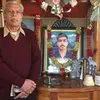20 years later, remembering the brave heroes of Kargil on Vijay Diwas
Following the infiltration of Pakistani soldiers on the Indian side of the LOC in 1999, India fought an intense battle with Pakistan, which came to be known as the Kargil war. On Vijay Diwas, we remember the brave heroes that led the country to victory.
July 26, 1999. The date shall never be forgotten. Twenty years on, on Kargil Vijay Diwas, India celebrates the victory and sacrifice of its armed forces who fought back bravely against Pakistan to recapture its own territories.
But this victory came with a heavy price. The defence forces fought bravely and with valour, no doubt, but the country also lost a large number of soldiers during the Kargil war.
These men are our heroes, who far from the comfort of their homes and family, put their lives on the line to make sure the rest of the nation was safe and sound.
As civilians, we tend to take the service of soldiers for granted, not realising how gruelling life as a soldier can be. Their service to their country makes them relentless, in mind, body, and spirit.
On Kargil Vijay Diwas, YourStory remembers the stories of some of these brave heroes and their unparalleled service to the nation, as they battled one of the toughest war operations in the most dangerous and difficult terrain.
Captain Vikram Batra
1564062295710.jpg?fm=png&auto=format)
Captain Vikram Batra
Also known as Sher Shah, (lion king) Captain Vikram Batra from Himachal Pradesh played an important role during the Kargil war, recapturing Peak 5140, located at an altitude of 17,000 ft, and Peak 4875.
Since childhood, Captain Batra was an all-rounder, proficient in academics, sports, and extracurriculars. Deeply patriotic from a young age, he joined the Indian Military Academy (IMA) at Dehradun, in June 1996. After completing his training, he served in Jammu and kashmir, Madhya Pradesh, Karnataka, Uttar Pradesh. Excelling in his training, he rose to the rank of Captain, before joining forces in Kargil.
This mission was difficult and dangerous as Indian soldiers had to climb the peak with the enemy perched at the top. Despite the risks involved, he managed to kill many enemy soldiers.
Suffering from injuries, he lost his life while trying to save a fellow soldier. For his display of bravery and leadership, Captain Vikram Batra was awarded the Param Vir Chakra - India’s highest award for gallantry in battle.
Major Devender Pal Singh
1564059624453.png?fm=png&auto=format)
Major Devender Pal Singh
India’s first blade runner, former Major Devender Pal Singh lost his leg and part of his intestines in the Kargil war. He was only 25 when he was hit by mortar fire on a Himalayan battlefield, and was injured in several parts of his body with shrapnel.
He was initially declared dead by the army surgeon at the field hospital, but was later revived. However, his infected leg had to be amputated. Major Singh served in the army for 10 years, joining the 7th battalion in 1997. Upon retiring after his injury, he did not give up and started playing sports to train himself. Now he is India’s first amputee marathon runner and holds multiple Limca Records.
Today, at 45, he is a marathon runner and a motivational speaker, inspiring amputees across India. He manages a support group called The Challenging Ones.
"I started this support group to inspire others in a similar predicament. Sports can help build confidence and help overcome the disability. People like me are generally called physically challenged. But I believe we are 'challengers'.
"The trauma of losing a part of your body is huge. Your family and friends cannot imagine life after amputation. The initial stage where the person realises that s/he has lost a limb is the most difficult. Peer support is crucial."
Captain Puneet Bakshi
Captain Puneet Bakshi, now a retired Indian Air Force pilot (WgCdr), is a veteran of Kargil war.
?fm=png&auto=format)
Captain Puneet Bakshi
Captain Bakshi, an alumnus of the National Defence Academy, is known to have flown jets and helicopters with rockets, bombs, missiles, front guns, barrel rolls, and loops for more than 5,000 hours.
During the Kargil war, he was part of the Forward Area Reconnaissance (FAC), which was instrumental in carrying out air strikes. He is said to have saved 832 lives over three days during the Kedarnath disaster relief operations in 2013. Captain Bakshi was also part of the State government’s efforts in rebuilding the Kedarnath temple.
On retiring as Director of Operations from the Air Force headquarters, he became an entrepreneur and launched his venture, GoChoppers.
Naseem Ahmad
Not a soldier but a tea seller, Naseem Ahmad from Dehradun is an unacknowledged hero who stayed behind in the Battle of Tololing, a pivotal battle during the Kargil War. While most people had left, Naseem stayed back in the conflict zone to serve tea to soldiers.
Speaking to India Today, the 61-year-old said, “I got many chances to leave Drass but my heart didn't allow me to leave. Even helpers at my shops fled. There were only a few tea shops in the area. All had closed during Kargil war. Normal life had come to a halt. I decided to stay in Drass to serve the Indian Army.”
1564061233964.png?fm=png&auto=format)
Naseem Ahmad
“Army convoys would cross through the Drass town and stopped at my tea stall. I would serve them tea and meals. I knew it was risky but I thought this was the least I could contribute to my nation - by serving the Army in this fashion,” he added.
Lt Balwan Singh
Born in Haryana, Former Lieutenant Balwan Singh, now a Colonel, was awarded the Maha Vir Chakra for capturing Tiger Hill along with his ghatak platoon during the Kargil war.
Colonel Balwan Singh is a second-generation soldier who was inspired by his father, Shobha Chand, a decorated soldier himself. He was asked to report to Kargil within just four months of joining the service.
The operation was a challenging one as the terrain was steep and occupied by enemy forces at a height of 16,500 feet. The officer led his team for over 12 hours under heavy artillery shelling and executed the task of reaching their destination.
(Edited by Rekha Balakrishnan)

1564059624453.png?mode=crop&crop=faces&ar=2%3A1&format=auto&w=1920&q=75)


1563291112187.png?fm=png&auto=format&h=100&w=100&crop=entropy&fit=crop)





